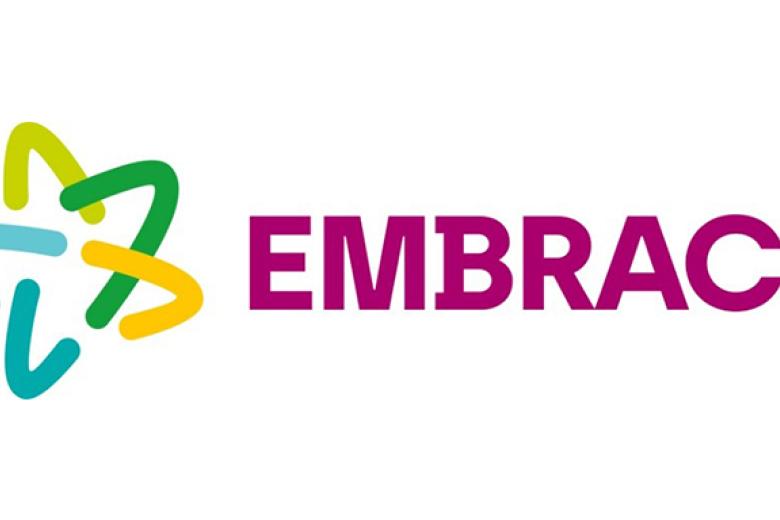PCE Research projects old
PCE researchers are active academics. Below you can find an overview of several current research projects PCE researchers have received funding for.
A coalition of hawks and doves? Explaining military receptiveness to civil society calls for transparency around the use of force
The Hawks and Doves project examines military receptiveness to NGO calls for transparency in Western European countries. It aims to understand the conditions under which military officials are willing to cooperate with civil society to improve transparency around the use of military force and its consequences.
The project is funded by the Gerda Henkel Foundation’s special programme on Security, Society and the State.
Project team:

Faces of Trade Diplomacy: Human perceptions, memories and hopes around trade multilateralism
Faces of Trade Diplomacy: Human perceptions, memories and hopes around trade multilateralism is an online gallery that builds on research findings from Dr. Clara Weinhardt's DFG research project on global power shifts and WTO politics.
“Faces of Trade Diplomacy” centres on making global trade diplomacy more relatable. While trade is perceived as highly technical, the exhibition wishes to reveal the more human elements of trade negotiations. By bringing personal stories, memories and hopes of trade diplomats to an audience, it seeks to build a connection between those that negotiate global trading rules and the more general public. Building on the DFG research project, the exhibition seeks to contextualise and go beyond the narrative of the crisis of trade multilateralism in a multipolar era.
Pictures by: Chantelle Gomez
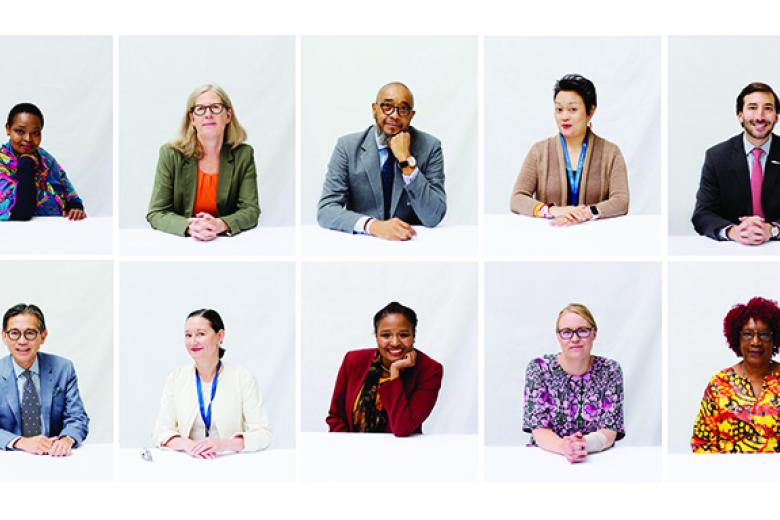
JOINT: Understanding and Strengthening EU Foreign and Security Policy in a Complex and Contested World
JOINT is an interdisciplinary research project which combines research with public opinion analysis, innovative policymaker engagement and proactive public outreach. It addresses the question: How to make EU foreign and security policy governance structures more joined-up and sustainable in a rapidly changing and contested international environment?
JOINT has received funding from the European Commission's Horizon2020 programme.
PCE project team:
Project partners:
- Istituto Affari Internazionali (IAI)
- Centre for European Policy Studies (CEPS)
- Free University of Berlin (FUB)
- Fondation pour la Recherche Stratégique (FRS)
- Barcelona Centre for International Affairs (CIDOB)
- Transatlantic Foundation (TF)
- International Centre for Defence and Security (ICDS)
- Norwegian Institute for International Affairs (NUPI)
- University of Siena (UNISI)
- National University of Kyiv Mohyla Academy (NaUKMA)
- Institute for Peace and Security Studies (IPSS)
- Center for Strategic and International Studies (CSIS)
- Centre for Economics and Foreign Policy Studies (EDAM)

LIMES: The Hardening and Softening of Borders
LIMES, the Latin word for border, is a doctoral programme for 13 talented PhD candidates in the domain of the humanities and social sciences, centred on the theme of ‘The Hardening and Softening of Borders: Europe in a Globalising World’. It has received funding from the European Union’s Horizon 2020 research and innovation programme under the Marie Skłodowska-Curie (grant agreement No 847596).
LIMES is led by the Faculty of Arts and Social Sciences (FASoS), thereby working closely with University College Maastricht (UCM), the School of Business and Economics (SBE), and the Faculty of Law (FL). 6 out of 13 PhD candidates are employed by FASoS and 1 PhD candidate is part of PCE.
| PhD candidate | Project | Supervisor |
|---|---|---|
| Akudo McGee |
Hardening and Softening of Borders in European Integration Enlargement |
Prof. Mathieu Segers |
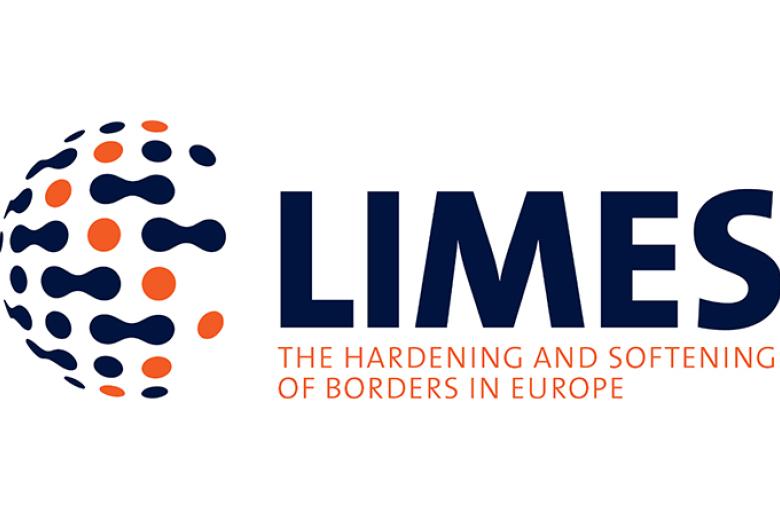
NestIOr: The Decline and Death of International Organizations
NestIOr is a five-year research project entitled "Who gets to live forever? Toward an Institutional Theory on the Decline and Death of International Organisations" (2019-2023) led by Dr. Hylke Dijkstra. Dr. Marie Debre is the postdoctoral researcher in this project. NestIOr has received funding from the European Research Council (ERC) under the European Union’s Horizon 2020 research and innovation programme (grant agreement No 802568). The project focusses on three areas: energy and environment, security, and finance.
| PCE project team | Project | Supervisor |
|---|---|---|
| Laura von Allwörden | Energy and environment | Dr. Hylke Dijkstra |
| Leonard Schuette | Security | Dr. Hylke Dijkstra |
| Giuseppe Zaccaria | Trade and Finance | Dr. Hylke Dijkstra |
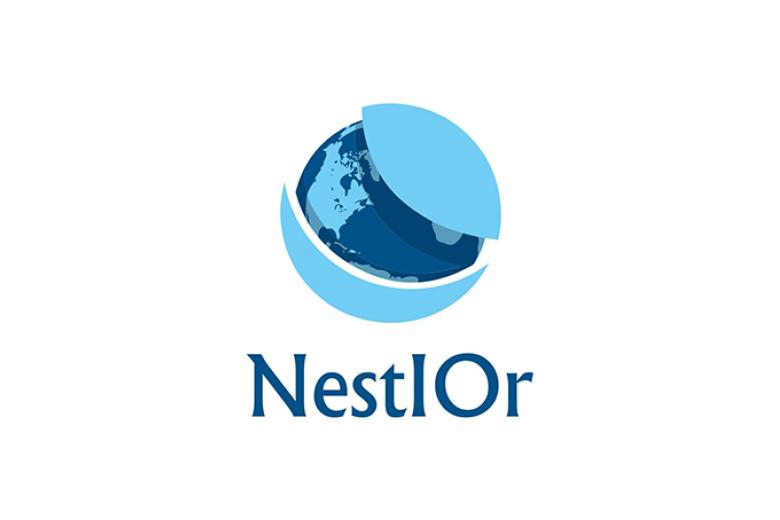
CHANCE: Jean Monnet Chair in EU Politics in a Changing Global Context
The JM Chair by PCE member Dr. Giselle Bosse aims to contribute to broadening the focus of European Studies at the Faculty of Arts and Social Sciences (FASoS) by expanding course content and research lines dealing with the challenges and chances for the EU in a changing global context. Challenges include significant shifts in the global order and rising great powers, which defy established principles of liberal international order; new security threats such as hybrid and cyber warfare; climate change; and major global technological change and innovation.
In this context, CHANCE aims to contribute to:
- strengthening research and teaching in the field of EU international relations at FASoS;
- consolidating and further developing research and teaching on the impact of a changing global context on EU politics and policies;
- supporting students and young scholars building their careers;
- increasing the visibility and relevance of FASoS research and teaching to academic and non-academic stakeholders at local, regional and national levels.
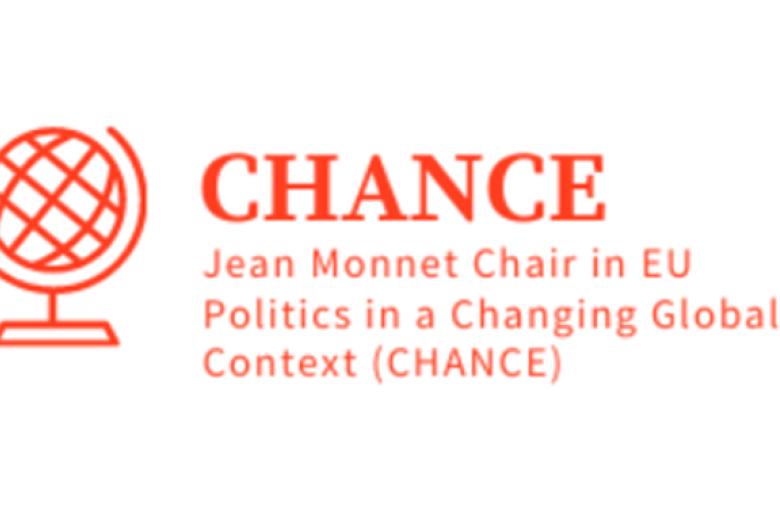
EUCTER: Jean Monnet Network on European Counter-Terrorism
EUCTER is a Jean Monnet Research Network that provides research-led excellence in teaching and learning at the intersection of two fundamental areas of EU policy: the Area of Freedom, Security and Justice, and EU counter-terrorism policy and law.
The project aims to discover and explain if and why EU counter-terrorism cooperation, as well as external relations (i.e. CFSP/CSDP, human rights, legal dimensions, etc.) have added to an increased relevance, and if and why diplomacy can add to the counter-terrorism tool set in the EU’s cooperation with third partners via its own delegations at the bilateral and multilateral levels.
Dr. Giselle Bosse contributes to this network by providing expertise on EU counterterrorism policies in the post-Soviet area, with a focus on the implications for human rights and democracy. Dr. Yf Reykers and Dr. Mariëlle Wijermars contribute research on the cybersecurity and democratic legitimacy dimensions of EU counterterrorism policies.
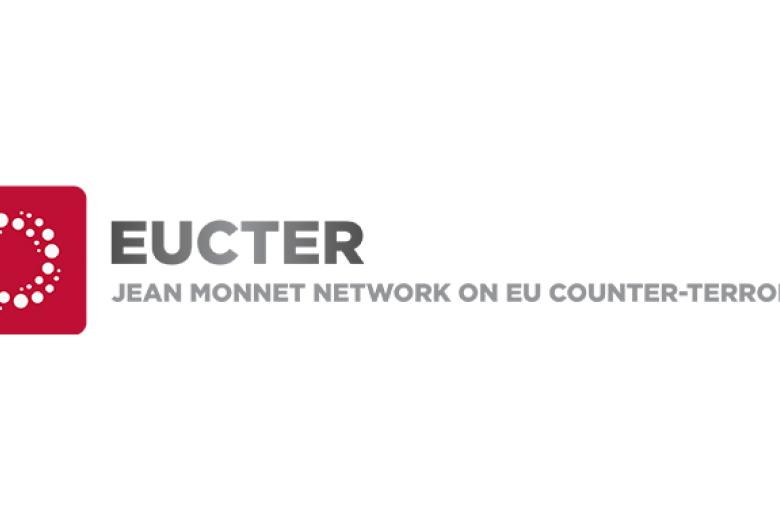
EU-East: Jean Monnet Chair on democracy and integration in Europe
The JM Chair by PCE member Dr. Gergana Noutcheva on Democracy and Integration in Europe 30 Years after the Berlin Wall addresses the internal challenges to the EU democratic acquis and their implications for the EU’s external democracy promotion role, most notably in the context of the EU enlargement policy and the Eastern Partnership by:
Strengthening the teaching at Maastricht University of Eastern Europe, the transformation processes that the post-communist region has experienced in the past 30 years since the collapse of communism and how they have affected the internal cohesion and the external credibility of the EU with respect to its core democratic values;
Conducting and supervising research on the democratisation and de-democratisation of postcommunist countries, including the EU’s impact on these processes, and inspiring the new generation of professionals and researchers interested in this field of study;
Reaching out to the community of practitioners and policy makers with policy proposals and recommendations about keeping up the EU’s internal democratic quality and enhancing the EU’s external democracy support role, especially in the EU’s immediate vicinity;
Engaging civil society members, students, teachers and the general public in a debate about the state of East-West integration as well as the future of EU Enlargement and Neighbourhood policies.
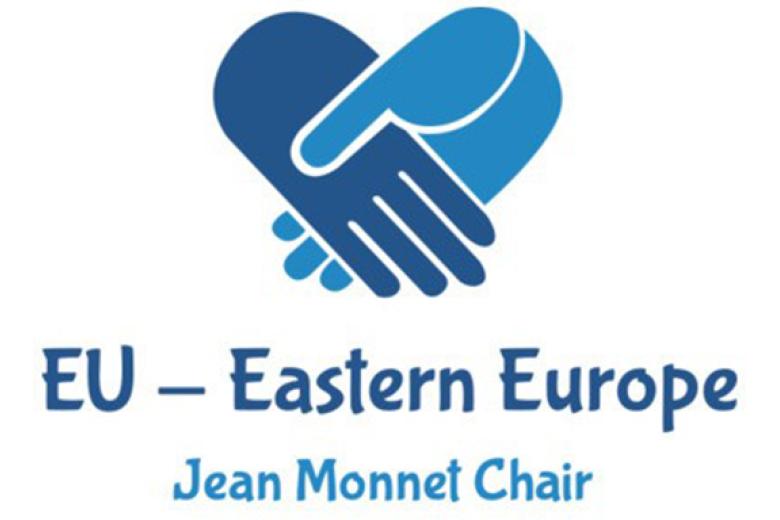
DeLab: Deliberation Laboratory
Deliberation Laboratory (DeLab): Artificial Intelligence and the Society of the Future is a four-year research project funded by the Volkswagen Foundation. It seeks to develop a moderator using artificial intelligence (AI) that can recognise escalating conflict in social media and intervene to de-escalate the situation.
The multi-disciplinary project team comprises specialists in computerised linguisitcs, philosophy, and AI, in Germany, Poland, Scotland, and the Netherlands. The UM team, led by Prof. John Parkinson, is developing and applying cultural script theory to detect the linguistic 'scripts' of conflict, before testing different AI responses in the laboratory and in the wild.

RENPET: Reconceptualising European Power in an Era of Turmoil: contestation, relevance, sustainability
RENPET (Reconceptualising European Power in an Era of Turmoil: contestation, relevance, sustainability) is a Jean Monnet Network of senior and junior scholars, policy-makers and civil society representatives that focuses on debating the political, economic and societal role of the EU in international affairs.
RENPET actively fosters cross-disciplinary and multi-national dialogue among different foreign policy stakeholders, but most prominently RENPET engages in an inclusive manner with (local) communities that are often not considered the primary interlocutors for elite-exchange on foreign policy-making.
PCE project team:
Project partners:
- Adam Mickiewicz University in Poznan
- ARENA Centre for European Studies, University of Oslo
- London School of Economics
- Institut Barcelona d’Estudis Internacionals (IBEI)
- KU Leuven
- Leiden University
- University College Dublin
- University of Kent
- University Association for Contemporary European Studies (UACES)
- Sabanci University
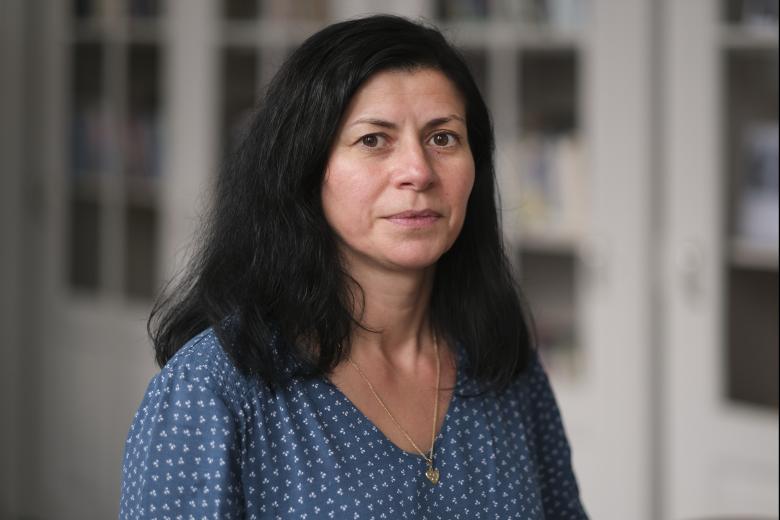
VISTA: ReVitalise the study of EU Single Market Integration in a turbulent age
The Jean Monnet Network project ‘ReVitalise the study of EU Single Market Integration in a turbulent age’ (VISTA) seeks to promote new research and teaching on contemporary developments in the single market in the areas of defence, the digital market, finance, and energy. It does so through the creation of new teaching materials at the involved universities, joint publications in academic journals, and policy papers.
PCE project team:
Project partners:
- University of Bristol
- Goethe University – Frankfurt
- National University of Kyiv-Mohyla Academy (NaUKMA)
- Tallinn University of Technology
- IAI-Rome
- CEPS-Brussels
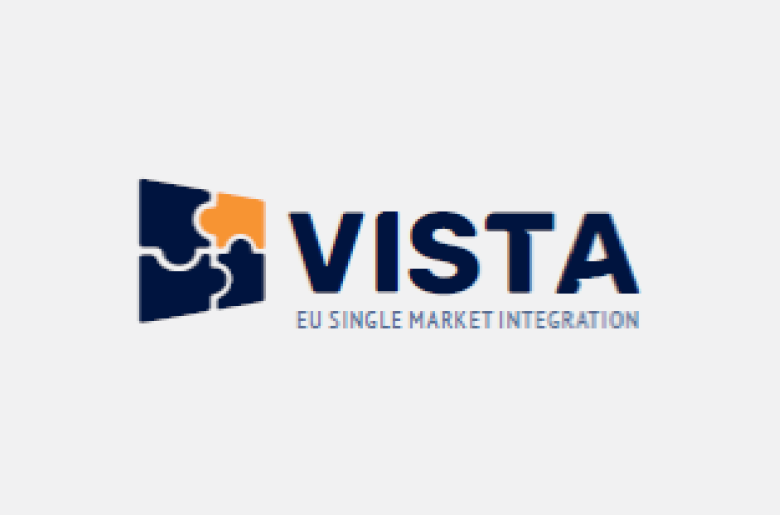
The Rise of Emerging Powers: A Challenge to Norms of Differential Treatment for Developing Countries?
The Rise of Emerging Powers: A Challenge to Norms of Differential Treatment for Developing Countries? investigates what the rise of Brazil, China and India (BICs) means for norms that rely on a binary North-South distinction. It seeks to understand under which conditions, and if so how, the rise of Brazil, China and India leads to the adaptation of global norms that provide differential treatment to developing countries as a group.
This project has received funding from the Swiss National Science Foundation and from the Deutsche Forschungsgemeinschaft.
PCE project team:
Project partners:
- University of St. Gallen
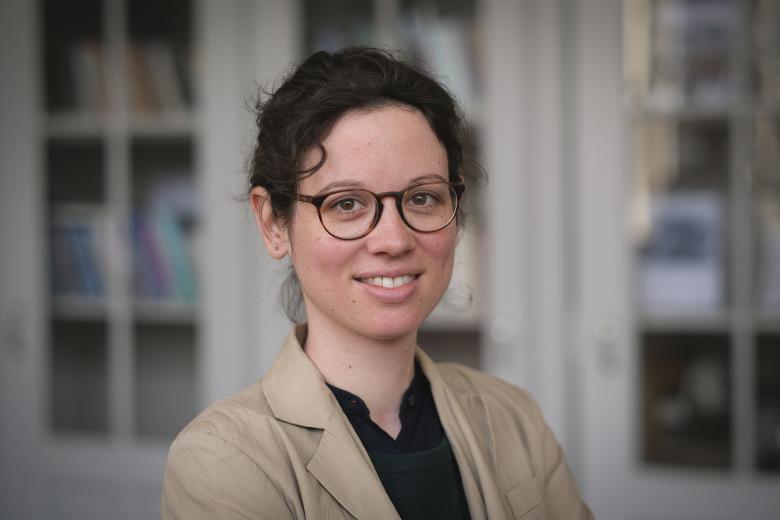
Between Politics and Technique: Designing International Extradition Law 1945-2000
'Between Politics and Technique: Designing International Extradition Law 1945-2000' seeks to examine the history of the international law of extradition during the short twentieth Century, one of the key elements to international law enforcement and respect for the international rule of law. The project aims to study how the development of this area of law played a key role in moving international law with respect to the treatment of individuals away from a rather discrete, legal-technical enterprise in 1918, and towards a highly visible and politicised process, which now seeks to be rendered technical again to evade the influence of politics on this body of international law.
This project, led by Dr. Pablo Del Hierro, has received funding from the Gerda Henkel Stiftung.
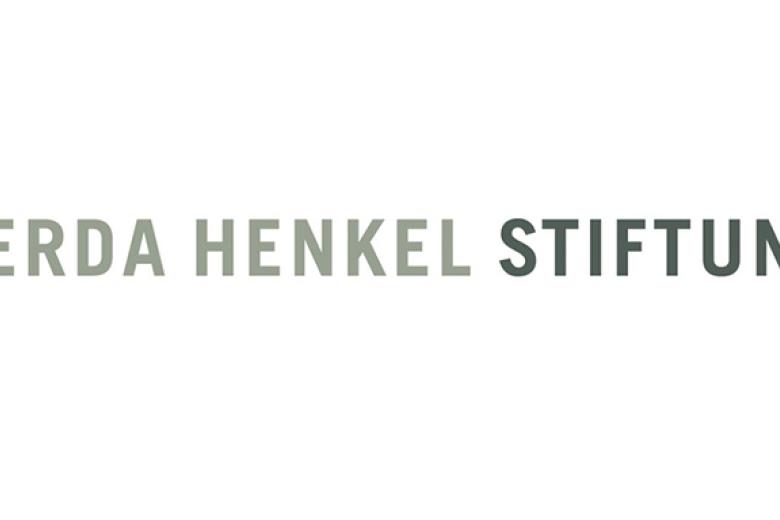
The forgotten occupation: Everyday life and social interactions in the Luxembourgish occupation zone in Germany (1945-1955)
Felix Streicher's PhD project 'The forgotten occupation: Everyday life and social interactions in the Luxembourgish occupation zone in Germany (1945-1955)' explores a case of foreign rule hitherto completely neglected in academic historical research: the Luxembourgish occupation in post-war Germany. The main focus of the project will be a detailed analysis of German-Luxembourgish social interactions inside the occupation zone through the lens of a history of everyday life, space and gender.
This PhD research project is funded by a grant from the Luxembourg National Research Fund (FNR).
Photo: Musée National d’Histoire Militaire (Lux.), Fonds Aloyse Jacoby, K336_189.
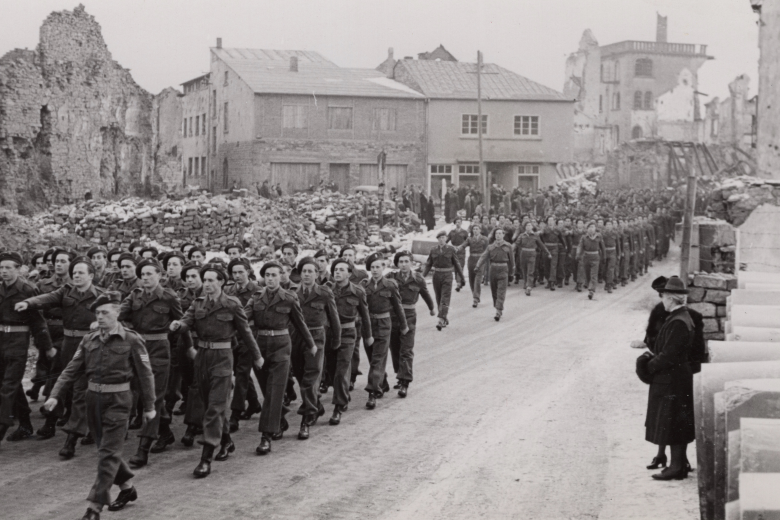
-
EMBRACing changE - Overcoming Blockages and Advancing Democracy in the European Neighbourhood
-
A coalition of hawks and doves? Explaining military receptiveness to civil society calls for transparency around the use of force
-
Faces of Trade Diplomacy: Human perceptions, memories and hopes around trade multilateralism
-
JOINT: Understanding and Strengthening EU Foreign and Security Policy in a Complex and Contested World
-
LIMES: The Hardening and Softening of Borders
-
NestIOr: The Decline and Death of International Organizations
-
CHANCE: Jean Monnet Chair in EU Politics in a Changing Global Context
-
EUCTER: Jean Monnet Network on European Counter-Terrorism
-
EU-East: Jean Monnet Chair on democracy and integration in Europe
-
DeLab: Deliberation Laboratory
-
RENPET: Reconceptualising European Power in an Era of Turmoil: contestation, relevance, sustainability
-
VISTA: ReVitalise the study of EU Single Market Integration in a turbulent age
-
The Rise of Emerging Powers: A Challenge to Norms of Differential Treatment for Developing Countries?
-
Between Politics and Technique: Designing International Extradition Law 1945-2000
-
The forgotten occupation: Everyday life and social interactions in the Luxembourgish occupation zone in Germany (1945-1955)
